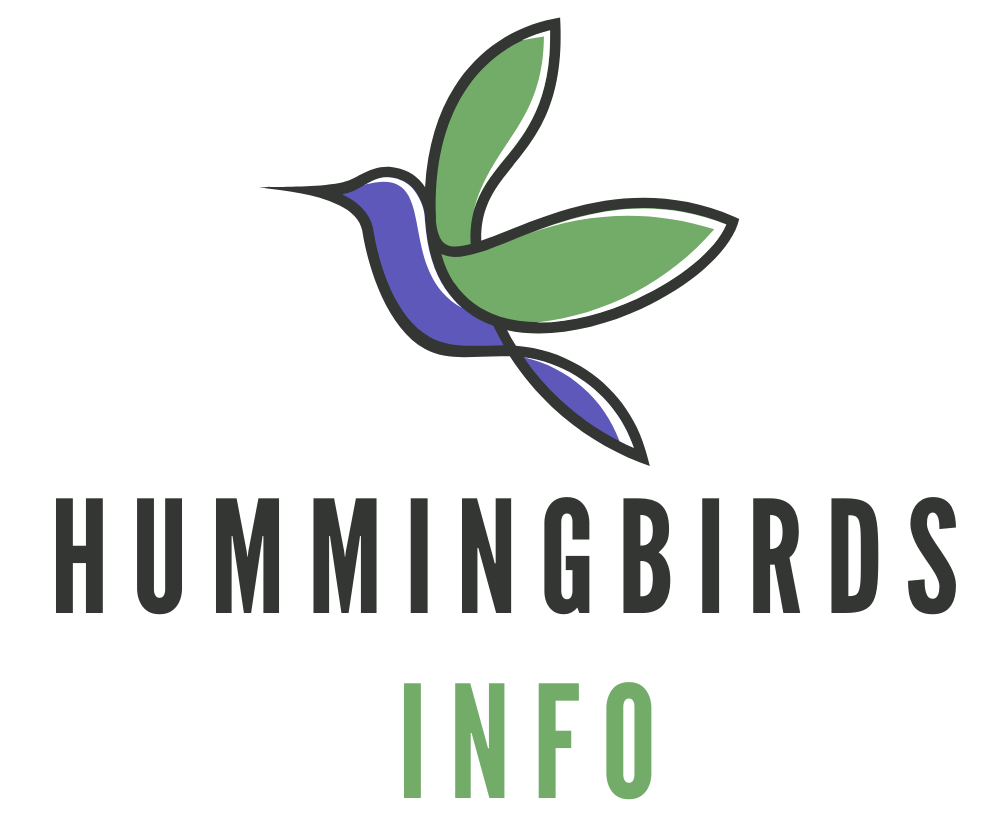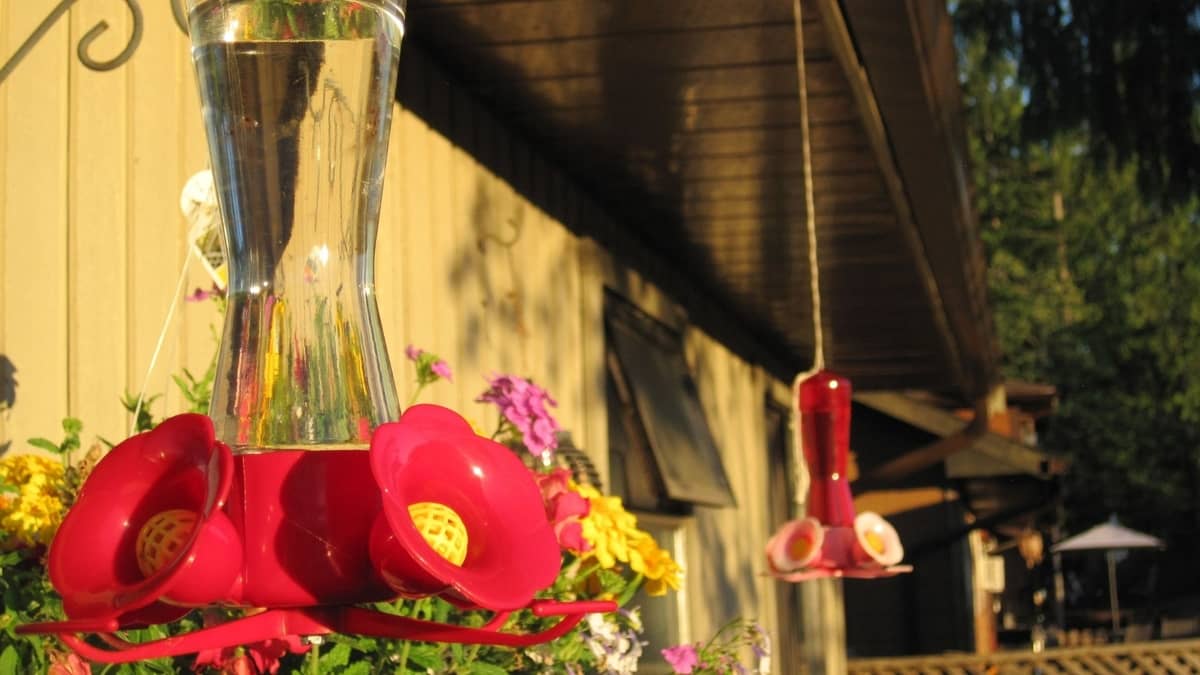So many hummingbird enthusiasts love watching these little hummers every year they migrate to our various regions during their season. We put up feeders, plant radiant flowers, and so on. But what if something goes wrong especially with feeders. Have you ever imagined if hummingbird feeders are bad in any way? Let’s find out.
Preparing and providing nectar is pretty easy and a fun thing to do. However, once you’ve decided to feed these lustrous birds with feeders, you need to also put in some measures to guarantee their safety.
After all, we hummingbird lovers wish to only supply our sweet iridescent friends with good nourishment and not poison. When it comes to knowing if hummingbird feeders are bad, there are some chances that hummingbird feeders can pose some risk to the health of our hummers.
So, let’s look into how hummingbird feeders may cause any adverse effect and suggest any possible remedy to it.
Are Hummingbird Feeders Bad For The Environment?
A hummingbird feeder is made from sugar and water in the right proportion. Hummingbird’s feeders aren’t so bad for the environment if you can properly maintain them.
However, when these feeders aren’t well maintained, it can put the health of these charming birds at risk. So, this always calls for great concern.
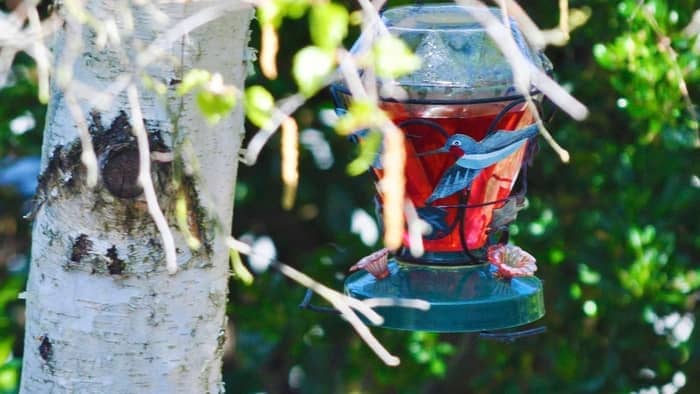
Furthermore, there are some things that can cause a hummingbird’s feeder to become bad. Things such as adding red food coloring to the feeders are bad. Other things such as unclean feeders and not adhering to the nectar recipe can cause hummingbirds’ feeders to become unpalatable.
Additionally, when there is any bees and ants invasion around the feeders, it can make the feeders unattractive to the hummingbirds.
The good news is that all these issues have solutions. So, continue reading to learn more about these issues and their remedies.
More Details On The Common Hummingbird Feeder Problems
Now let’s give some insight on the common issues that may arise at feeding stations that can cause feeders to go bad. Let’s look into the question: are hummingbird feeders bad for hummingbirds?
1. Addition of Red Food Coloring
Some hummingbird lovers do imbibe the addition of red food coloring to their hummingbird feeders. This is because radiant color such as red has been known to positively attract hummingbirds.
However, this is a very wrong thing to do as hummingbird experts have frowned against doing this. Even though there hasn’t been any research is done or evidence on the effect of red dye on the hummingbird feeder, there are other signs to indicate red coloring may be bad for hummingbirds.
For instance, there has been research on red food coloring in mice and rats that has shown carcinogenic and mutagenic effects on them.
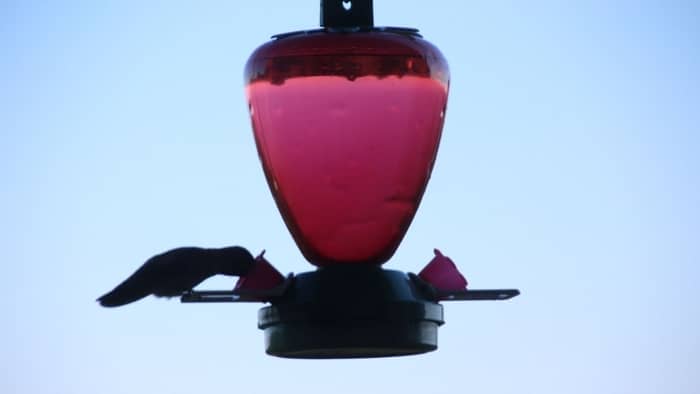
Even to humans, the red food coloring known as Allura Red (Red dye number 40) has been shown to be harmful if the accepted daily intake is exceeded.
The addition of isn’t even necessary. There are other things you can do to accurately attract these sweet birds to your yard. Things such as tying some red ribbon or cloth around the feeder are great ideas. Also, you can simply go for feeders decorated in radiant colors such as red, orange, pink, etc.
2. Unclean Feeders
If you do not maintain a clean feeder, they can go bad and cause serious harm to our sweet hummers. You need to frequently clean feeders and replace them at appropriate times.
Ideally, during very hot days, feeders should be replaced every one or two days. During temperatures that are moderate, you can change feeders 2 or 3 times a week.
Doing all this will prevent mold or other unwanted infestation from causing your hummingbird feeder to go bad.
3. Bees and Ant’s Invasion
Another common hummingbird feeder issue is bees and ants invasion. Bees and ants love sweet things and hummingbird feeders are made of sweet sugar and water.
Although hummingbirds can still live and feed in harmony with just a couple of bees and ants, one still needs to take precautions to reduce their invasion.
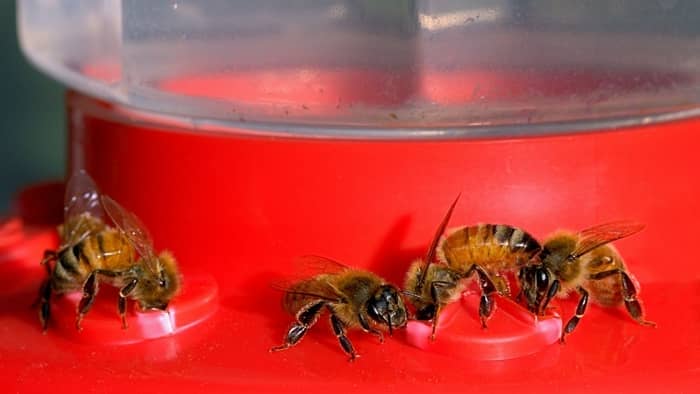
If the invasion becomes unbearable to hummingbirds, they tend to abandon the feeder to go look for other reliable food sources.
This is why cleaning your feeders frequently is required. Clean any spilled nectar that may be around your feeders. Seal up any leaking part on your hummingbird feeders to avoid spilling the sugar content.
4. Inaccurate Nectar Recipe
Another point to look at regarding hummingbird feeders turning bad is not adhering to the ratio of sugar to water.
The accurate or appropriate ratio of sugar to water is 1 to 4. This means you mix 4 parts of water with 1 part of sugar to produce the accurate hummingbird feeder solution.
5. The Wrong Food Sweetener
Some may wish to use other types of food sweeteners apart from sugar to make hummingbird solutions. This is usually wrong. The accurate or ideal sweetener is white refined sugar.
Using other sweeteners such as honey, molasses, raw sugar, and so on, is not ideal for preparing hummingbird feeders. Making use of this inappropriate sweetener can cause pose an adverse health risk to hummingbirds. It can encourage the growth of bad pathogens and bacteria bad to the hummingbird.
For instance, one common infection caused by fungus is Candidiasis. Hummingbirds get this unpleasant fungus from unclean feeders that develop rapidly with the use of honey as a sweetener.
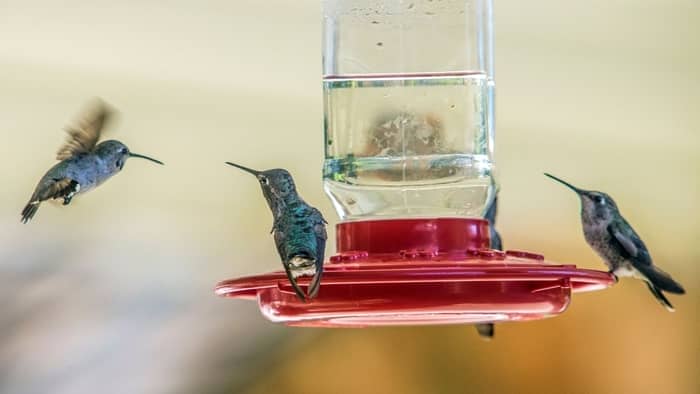
Are Hummingbird Feeders Bad: Recap
From the above, we now have some good insight on getting to know if hummingbird feeders can be bad for our sweet little hummers.
Here is a quick recap of what we discussed:
- Anything can go wrong with hummingbirds’ feeders and cause it to go bad.
- Adverse things such as not maintaining a clean hummingbird feeder, ants and bees invasion, red food coloring addition, inaccurate nectar recipe, and so on can make hummingbird feeder go bad.
- Therefore, it is necessary you adequately clean your hummingbird feeders when necessary.
- During temperature changes, clean the feeders according to how hot the temperature is. Very hot temperature requires cleaning and replacing feeders at least once or twice weekly. The mild temperature needs you to clean your feeders at least 3 times if 4 times a week.
